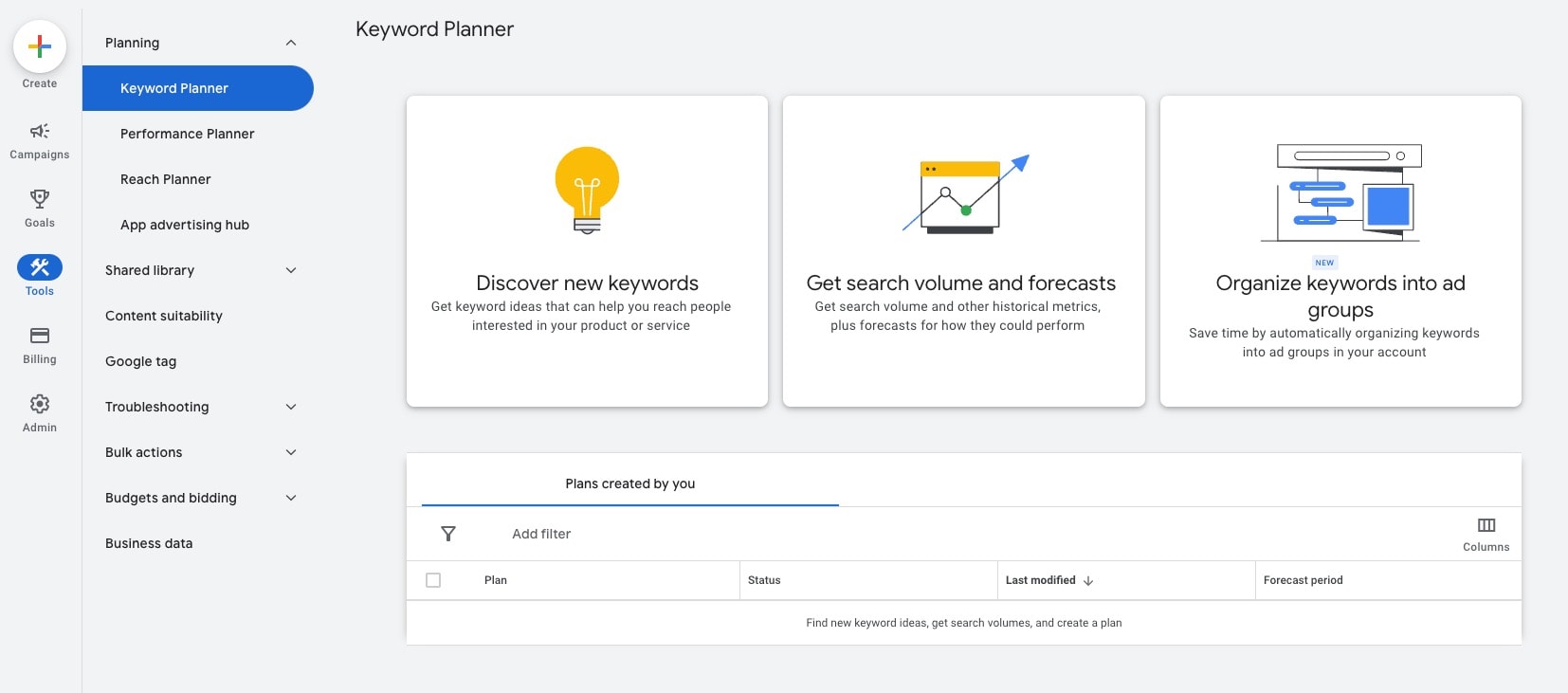The Rules of Using Google Keyword Planner: Smart Tactics
Google Keyword Planner is a powerful tool for keyword research in SEO. It helps you identify the right keywords to target in your content to improve your search engine rankings. However, to make the most out of Google Keyword Planner, you need to follow certain rules and best practices. Here are some important rules to keep in mind when using Google Keyword Planner:
1. Have a Google Ads Account
In order to use Google Keyword Planner, you need to have a Google Ads account. You can create one for free if you don't have it already. Having a Google Ads account will allow you to access the full features of Google Keyword Planner and make accurate keyword research for your SEO strategy.
2. Understand Your Target Audience
Before using Google Keyword Planner, it's crucial to have a clear understanding of your target audience and their search intent. Identify the language, terms, and phrases your audience uses to search for products or services similar to yours. This will help you generate relevant keywords that resonate with your audience.

Credit: backlinko.com
3. Focus on Relevance
When using Google Keyword Planner, prioritize relevance over search volume. While high search volume keywords may seem attractive, they may not always be the best fit for your content. Focus on selecting keywords that are highly relevant to your business and align with your content strategy.
4. Use Long-Tail Keywords
Long-tail keywords are specific phrases that target a niche audience. They may have lower search volume compared to broad keywords, but they often result in higher conversion rates. Incorporate long-tail keywords into your content strategy to attract qualified traffic and improve your chances of ranking higher in search results.
5. Analyze Competition
Before finalizing your keyword list, analyze the competition for each keyword. Google Keyword Planner provides insights into the level of competition for specific keywords. Choose keywords with a balance of search volume and competition to increase your chances of ranking well in search engine results.

Credit: www.linkedin.com
6. Use Keyword Filters
Google Keyword Planner offers various filters to refine your keyword research. Use filters such as location, language, and search network to tailor your keyword suggestions based on your target audience and campaign goals. This will help you generate more accurate and relevant keyword ideas.
7. Group Keywords Strategically
Organize your keywords into thematic groups to create targeted ad campaigns or optimize your website content. Grouping keywords strategically helps you create focused and relevant content that addresses specific search queries. This approach can improve your click-through rates and overall SEO performance.
8. Regularly Review and Update Keywords
Keyword trends and search patterns change over time, so it's essential to regularly review and update your keyword list. Monitor the performance of your keywords, identify new opportunities, and refine your strategy based on the latest search data. Keeping your keyword list updated ensures that your content remains relevant and competitive.
9. Test and Iterate
Keyword research is an ongoing process, and it's important to test different keyword combinations and strategies to see what works best for your business. Conduct A/B tests, track the performance of your keywords, and iterate on your keyword strategy to optimize your SEO efforts continuously. Testing and iterating will help you refine your keyword targeting and improve your search rankings over time.
10. Stay Informed About SEO Trends
Lastly, stay informed about the latest SEO trends and algorithm updates to adapt your keyword strategy accordingly. SEO is a dynamic field, and what works today may not work tomorrow. By staying up to date with industry trends and best practices, you can ensure that your keyword strategy remains effective and aligns with the current SEO landscape.
By following these rules and best practices, you can make the most out of Google Keyword Planner and enhance your SEO efforts. Remember that keyword research is a crucial aspect of SEO, and using the right keywords can significantly impact your search engine rankings and online visibility.
Frequently Asked Questions
What Is Google Keyword Planner?
Google Keyword Planner is a free tool that helps to find the right keywords to target for search ads.
How To Access Google Keyword Planner?
To access Google Keyword Planner, you need to have a Google Ads account. Sign in to your account, click on 'Tools & Settings' and select 'Keyword Planner'.
Why Is Google Keyword Planner Important?
Google Keyword Planner is important as it helps to find the most relevant keywords for your ads, and helps to estimate the potential traffic and cost for those keywords.
Can Google Keyword Planner Help With Seo?
Yes, Google Keyword Planner can help with SEO by providing insights into the search volume and competition of keywords related to your business.
